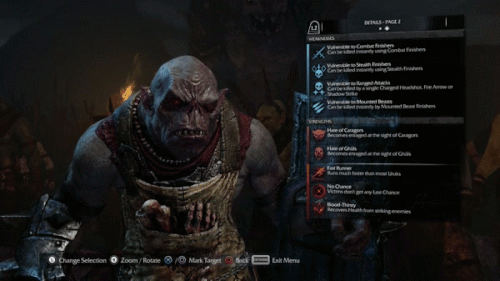ZAP.C #2 – Why I hate open-world games but love the Witcher 3
I hate open-world games. There, I said it again. Why does everyone else love them? I feel like a just as crochety, but less rapey Bill Cosby, shaking my head at these kids with their new-fangled game fads. They don't know what the jazz is all about!
My distaste for open-world games is not for lack of trying. In the past 5 years, I've tried Assassin's Creed 2 and Black Flag, Just Cause 2, Middle Earth: Shadow of Mordor, Far Cry 4, GTA V, and Skyrim. Of these games, the only title I've sunk more than 20 hours into has been Skyrim, which I'll talk more about in a second.
I think my distaste for open-world games can be traced to a fundamental shift in game design over the past decade. Games in the mid 2000's were trying so hard to be blockbuster movies. If you look at the popular games of 2005, you see titles like Call of Duty 2, F.E.A.R., and Resident Evil 4 - all games designed around a tightly scripted narrative and big action sequences.

Since then, we've seen a shift away from narrative-driven design and more towards what academics with too much time on their hands call "emergent narratives". The idea is that we, as game developers, should stop trying to emulate movies (because we're pretty bad at that), and instead focus on qualities that are unique to games as a medium.
An example of an emergent narrative would be the Nemesis System in Middle Earth: Shadow of Mordor. For the unfamiliar, this is a gameplay system that randomly generates names, personalities, and dialogue for any grunt that manages to kill you in the game. Embarrassed? You should be, because now that grunt is going to get stronger and taunt you every time he kills you for the rest of the game.

In principle, I'm actually really in favor of this shift. Games can tell stories in immersive ways that movies can only have wet dreams about. However, I think that we're still far from the level of sophistication that I dream about in MY wet dreams.
What I mean by this is that emergent narratives in games right now don't hold a candle to traditional story-telling in books and movies. It might be fun luring an elephant into a band of angry rebels during a Far Cry 4 session, but at the end of the day, you're not going to mourn that elephant's death or feel any other emotion beyond mild amusement.

The lack of memorable experiences in these games is a major problem for me. At best, you'll remember a funny interaction you had with an NPC. At worst, you'll feel like you're just checking off boxes on the map *cough*Ubisoft*cough*.
Games that focus on traditional narratives still form characters and plot arcs much better than their emergent-focused peers, which is why I really enjoy the Witcher 3. The effort put into the hundreds of side-quests and overall quality of the writing is what sets it apart. Each quest isn't simply a question mark on the map - it's an invitation to a new, intriguing storyline.

Skyrim has a similar design structure, but in the derpy way that is distinctly Bethesda, the actual gameplay following each quest devolves into a familiar pattern - Talk to NPC, learn detailed backstory, go find item in a dungeon infested with draugr. Every. Damn. Time. The Witcher 3 remedies this design laziness by actually melding the gameplay to the storylines of the various quests, involving more interesting gameplay elements than just fighting monsters in caves.
While I think games like Witcher 3 are fantastic now because they provide the perfect combination of sharp storytelling and the freedom of an open-world game, games like Shadow of Mordor are certainly hinting at a brighter future. Emergent narratives can certainly become powerful as long as their systems are complex enough to create rich, involving narratives that are unique and memorable. I look forward to playing games that actually do give me a unique experience from the "interactive movie" formula that works best today.

Leave a Reply